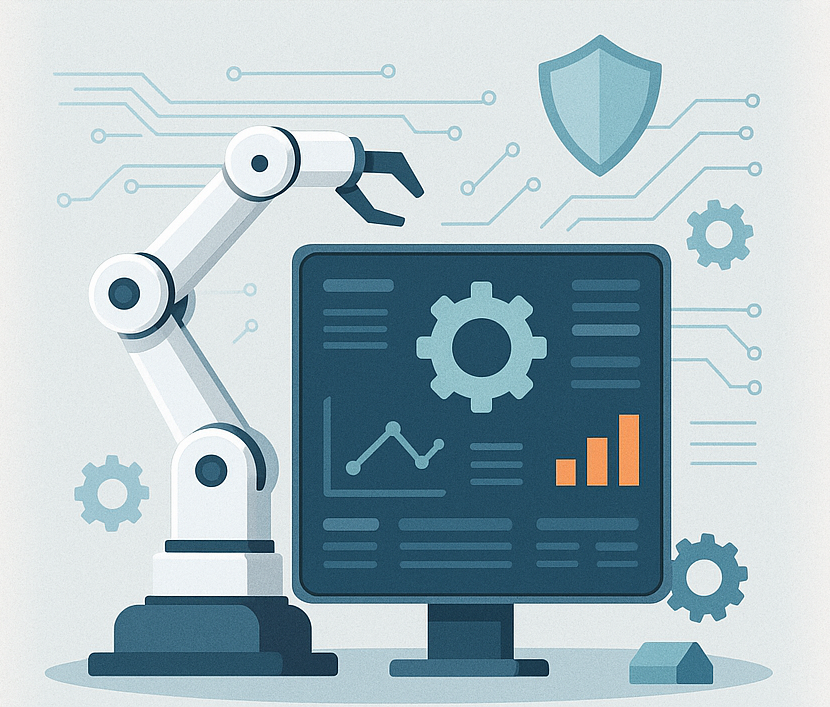
Karthik Ramamurthy, a leader in fintech automation, brings over a decade of industry experience. He has shaped frameworks that ensure compliance in crises and drive scalable, future-ready innovation. From enabling mortgage relief during the pandemic to engineering next-generation credit platforms, his vision and technical depth have guided high-stakes transformations. As fintech evolves, his work highlights the vital role of engineering leaders in accelerating delivery while strengthening trust at scale.
Q. Can you tell us a little about yourself and your background?
Ramamurthy: I'm an engineering leader specializing in automation, quality engineering, and intelligent systems. Over the past decade, I've led initiatives that empowered organizations ranging from the World Bank to Fannie Mae and now Mercury Financial to build scalable and resilient platforms. My work has spanned national housing programs, mortgage servicing, and credit innovation, where I've focused on aligning technology with business outcomes and societal needs. Today at Mercury Financial, I lead automation strategies that help near-prime consumers build credit responsibly. As I often say, "my mission isn't just to write code—it's to engineer trust at scale."
Q. How did you first venture into automation?
Ramamurthy: Early in my career, I realized that manual testing couldn't keep up with the speed of modern software delivery. I was drawn to automation because it freed teams from repetitive work and ensured reliability. What began as a technical interest quickly evolved into a philosophy: "automation shouldn't just deliver speed—it should deliver confidence, trust, and resilience." That idea has guided every project I've led since.
Q. Your work at Fannie Mae came during the pandemic, when millions of homeowners were in crisis. What was your role in that moment?
Ramamurthy: Between 2017 and 2022, I worked on automation systems that supported Fannie Mae's broader mission of housing stability. My role touched both lending and servicing platforms, ensuring that complex mortgage processes—from loan origination to repayment—could operate at scale with reliability and compliance. When the pandemic struck, the housing market faced historic stress, and relief policies were changing almost daily. I worked on frameworks that could translate those evolving directives into executable rules in real time. For many families, "it wasn't just code, it became a lifeline."
Q. Beyond crisis response, what broader impact do you see from your work?
Ramamurthy: At Mercury Financial, I've introduced automation that ensures credit decisioning models are accurate, fair, and fast—helping near-prime borrowers, often overlooked by big banks, access credit responsibly. A big part of this has been building cross-platform automation frameworks that unify testing across web, mobile, and backend services. These frameworks cut regression cycles from days to hours and allow new features to reach customers faster, without compromising compliance.
Just as importantly, our mobile apps, which now serve hundreds of thousands of active users, consistently rank highly on the App Store and Google Play. Ensuring that these apps remain stable, intuitive, and secure is central to my automation strategy. On a larger scale, poor software quality costs the U.S. economy over $2 trillion annually. By designing frameworks that save time, reduce errors, and improve resilience, my work helps address this systemic challenge. "Every hour saved in testing is an hour gained for innovation and customer value."
Q. What strategies help you keep automation frameworks effective as technology evolves?
Ramamurthy: Adaptability is everything. Technically, that means production-parity environments, predictive intelligence to anticipate risks, and self-healing pipelines that resolve issues before they escalate. Strategically, it's about aligning engineering metrics with customer outcomes and business priorities. "Technology should never exist in a vacuum—it must connect directly to human value."
Q. What challenges have you faced in this journey?
Ramamurthy: The toughest challenge is cultural. Many still see automation as a tool rather than a mindset. Shifting that perspective—embedding quality from the start instead of patching it in later—requires persistence. Another challenge is staying resilient amid constant regulatory and technological change, but I've always viewed each challenge as an opportunity to build smarter, safer, and stronger systems.
Q. Looking back, what would you say is your personal impact in this field?
Ramamurthy: My impact has been in defining automation as a driver of trust, not just efficiency. At Fannie Mae, that meant keeping Americans in their homes during a time of national uncertainty while ensuring lending and servicing platforms could adapt seamlessly under pressure. At Mercury, it means giving underserved borrowers access to credit. More broadly, it means helping the U.S. financial system become faster, safer, and more resilient. To me, "the true measure of engineering isn't the code we ship, but the lives we touch." Whether that's keeping families in their homes during a crisis or enabling near-prime consumers to build credit through seamless web and mobile app experiences powered by cross-platform automation, my impact has been about making financial systems faster, safer, and more inclusive.
Engineering the Future: A Critical Force in Automation Leadership
Karthik Ramamurthy's career underscores his original contributions in transforming automation into a strategic driver of trust and resilience. From strengthening lending and servicing platforms at Fannie Mae to building scalable, intelligent frameworks at Mercury Financial, his work directly shaped how critical U.S. financial systems operate under pressure.
By combining technical depth with leadership vision, Ramamurthy has played a critical role in ensuring compliance, accelerating delivery, and safeguarding millions of Americans' financial well-being. His contributions are not only unique but also of major significance to the fields of fintech and mortgage technology, establishing him as a critical leader advancing the future of automation.
ⓒ 2026 TECHTIMES.com All rights reserved. Do not reproduce without permission.





